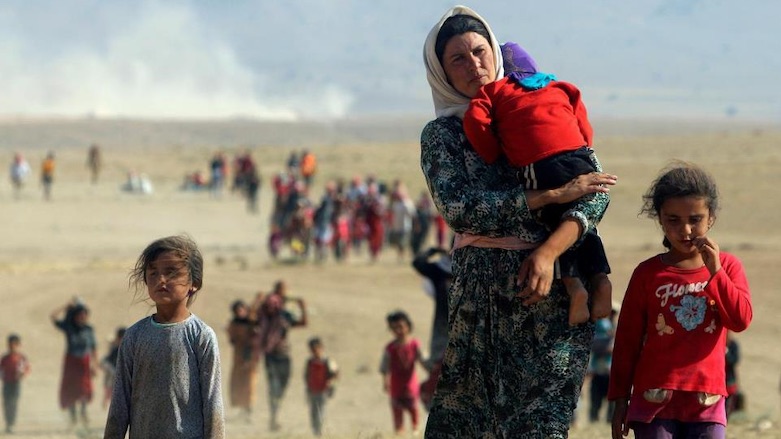UNITAD identifies over 160 ISIS suspects who will face justice for Yezidi crimes

ERBIL (Kurdistan 24) – The United Nations Investigative Team for the Accountability of Islamic State crimes (UNITAD) has identified over 160 Islamic State suspects who committed crimes against the Yezidi (Ezidi) people, the organization’s head said.
During an address to the United Nations Security Council on Tuesday, Karim Asad Ahmad Khan, the Special Advisor and Head of the Investigative Team, said the investigation of attacks on Ezidis in Sinjar (Shingal) had identified “over 160 perpetrators,” adding the next step is to build “case files that may be presented to appropriate courts.”
“In a significant development, the government of Iraq has also taken purposeful steps toward the introduction of legislation allowing for the prosecution of acts committed by ISIS as war crimes, crimes against humanity, and genocide,” he added.
Before extending its mission in Iraq in September, UNITAD said it had made “strong progress” in efforts to find evidence to bring members of the terror group to justice.
According to Khan at the time, “digital, documentary, testimonial, and forensic evidence is now being collected” to help with the prosecution of members of the so-called Islamic State “for their atrocity crimes committed in Iraq.”
Read More: UNITAD marks ‘strong progress’ in efforts to hold ISIS accountable for crimes in Iraq
On March 15, the Iraqi government, the Kurdistan Regional Government (KRG), and UNITAD marked the beginning of national efforts to unearth the first mass graves of Ezidi victims of the Islamic State.
At least 79 mass graves were found and unearthed as the organization works to identify ways to use the evidence it has gathered effectively.
The emergence of the Islamic State and their violent assault on the Ezidi-majority city of Shingal in 2014 led to the displacement of hundreds of thousands of Ezidi civilians. Most of them fled to the Kurdistan Region, while others resettled to neighboring countries in the region or Western states.
Others were not as lucky and remained stranded in the war zone, where they experienced atrocities and mass executions at the hands of the extremist group for years.
